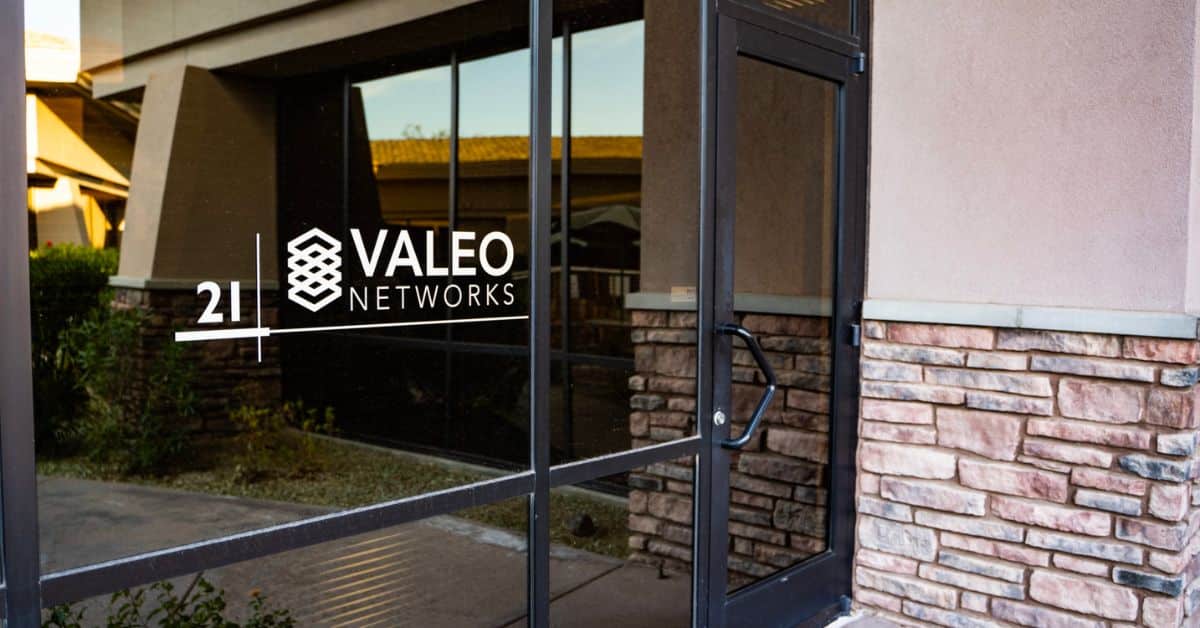FLORIDA TODAY, Business Spotlight: Valeo Networks
Wayne T. Price , FLORIDA TODAY 9:29 a.m. ET Feb. 17, 2017
3 min read
Valeo Networks : Feb 17, 2020 12:00:00 AM
Small- to medium-sized businesses (SMB) face a myriad of unique challenges when juggling their IT needs. While a smaller workforce size can make these enterprises nimbler than their larger counterparts, they often lack the financial and staffing resources to navigate today’s complex IT landscape. Hence, more and more SMBs are outsourcing IT services to third-party providers when their needs outgrow the capacity to provide key services in-house.
When a company chooses to outsource IT, they want a service provider to carry either some or all of their IT workload. That can include managing business processes, applications, security and infrastructure. Outside service providers can help a business manage its IT budget, increase efficiencies, accelerate time to market and ultimately improve customer satisfaction. For some enterprises with experienced IT teams in place, going all-in on an outsourced IT solution might seem unnecessarily extreme. For these organizations, a co-managed IT solution can take advantage of the best of what in-house and outsourced IT can offer. So, when does a company know that it is time to seek outside help and what types of services should they seek?
IT is a specialized field. To do it right requires a level of expertise that the average SMB or smaller organization may not have. The cost of covering all of your bases efficiently and effectively goes beyond the capabilities of most enterprises. Sure, many big tech companies handle their IT internally, because IT is part of their core competency. As Manny Vellon, Level 11 CTO puts it, “Unless you are Amazon, Dropbox, Google or some other company that generates value because of its IT operations, you should consider outsourcing it.”
Every enterprise hopes to grow over time, but most companies only take into account a small growth factor when assessing their IT needs. Any kind of growth brings with it a unique set of challenges — new servers, software and infrastructure, just for starters. How will you approach your company’s evolving security needs? Will upgrades be compatible with legacy equipment and data? By outsourcing, a company gains a degree of scalability that would not be possible with an in-house IT department. Chalmers Brown, co-founder and CTO of Due puts it this way: “In order to scale up, it often makes sense to outsource until you know you are ready to take on extra developers or IT talent full-time. Plus, if you need to fill a skills gap quickly to get a project done, it’s time to outsource.”
Nobody seeks out disaster, but smart companies large and small need a plan for the day it strikes. Third-party IT service providers are equipped to ensure your IT resources and data are properly backed up and that a plan is in place for the quickest road to recovery when things go wrong. This can be a natural disaster like an earthquake or flood, or a man-made setback such as a data breach or ransomware attack. Business disruption can be an enterprise’s worst nightmare. Statistics show that businesses that undergo substantial periods of disruption are very unlikely to survive beyond the next few years. An outsourced IT managed service provider (MSP) can deliver the experience and resources to assemble a custom recovery plan to maintain operations and protect your critical data when you need it most.
There comes a time in every enterprise’s growth when the demands of running an IT department in-house begins to detract from your overall business operations. Soon your business’s IT needs are funneling away time, personnel and financial resources you should be expending on the core business. “Outsource when IT begins to take time away from the functioning of your business,” IT professional Daniel Munk recently told Forbes. “The more time you spend on your IT setup, the less time you are spending on your business objectives. Often when you outsource your IT, you get an entire team with a wide variety of skills, rather than having a single in-house resource.”
For many SMBs, outsourcing IT just makes good business sense. Outsourcing can help reduce capital and operating expenses because you no longer have to be concerned with procurement, installation and management of your enterprise’s IT. You also avoid the expenses associated with hiring additional staff. With an MSP, these factors as well as support and security can be packaged with a single provider, at one predictable price.
Whatever your reason for moving to an outside IT services provider, the time to act is now. Thankfully, there is no shortage of MSPs ready to fill the bill. The next challenge is choosing one that is right for your enterprise. Valeo Networks offers a wide range of flexible, scalable IT service packages that can be customized to the needs of an SMB or other organizations — covering cloud, security, disaster response and recovery, among others.


Wayne T. Price , FLORIDA TODAY 9:29 a.m. ET Feb. 17, 2017

Camarillo, CA, Rockledge, FL, and Eureka, CA (August 4, 2020) – Valeo Networks, a division of Saalex Corporation and an industry-leading Managed...

Managed Service Providers (MSP) offer many benefits to your company. From cost savings to monitoring and minimizing security risks, an MSP will...

With cutting-edge technology and quality customer service,
you’ll find everything you need to help your company soar
with Valeo Networks.
1006 Pathfinder Way
Rockledge, FL 32955
Business Hours:
M-F: 8AM-9PM
© 2026 Copyright Valeo Networks. All Rights Reserved.